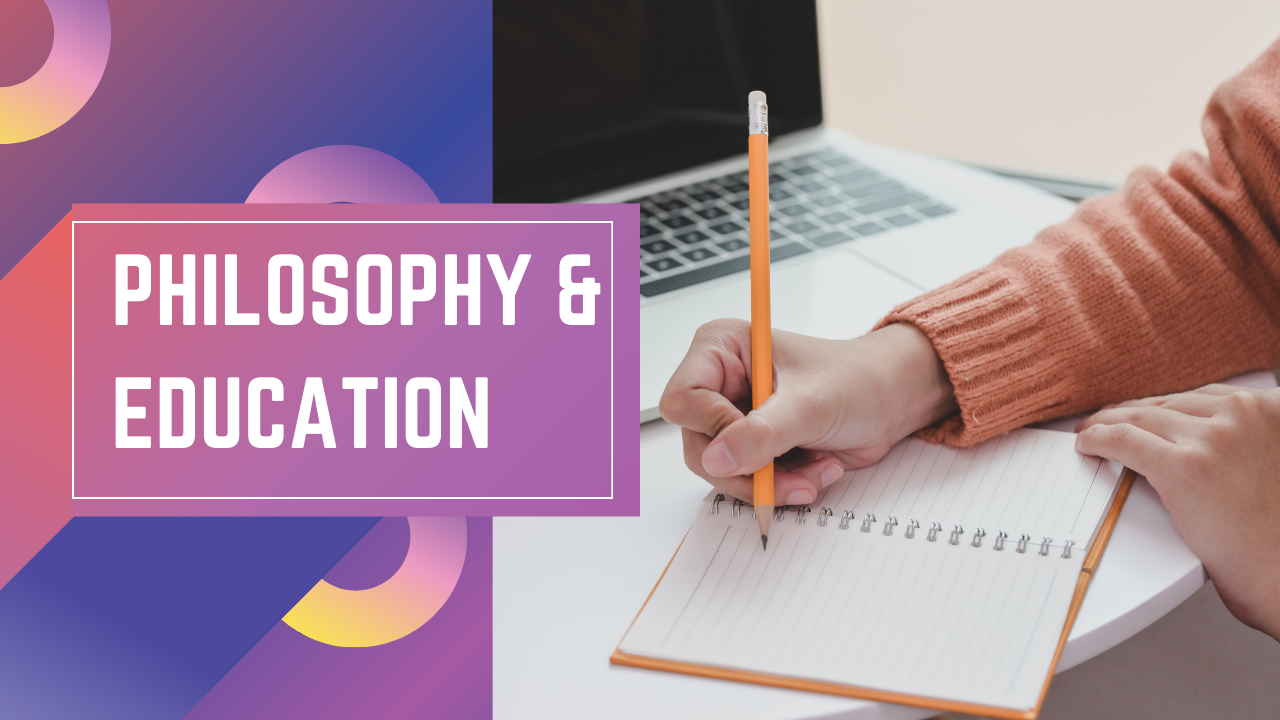Philosophy of Education is the branch of Philosophy that deals with answering the fundamental questions about education such as nature, purpose and methods of education. It digs down the principles and beliefs that guide the direction of education and educational practices. The key concepts and themes included in the philosophy of education are following:
Nature of Knowledge: Educational Philosophy uncovers the question that what is exact nature of knowledge, how it is gained and what is relationship between truth and knowledge and how they are interdependent?
Aims and Goals: The objectives of education are quizzed in Philosophy of Education. Here the basic questions are what are the absolute goals of education, how skills are gained and practiced, how personal growth is promoted and what is social responsibility of education.
Role of Teacher and Student: The role of teacher and student in educational process is examined in Philosophy of Education. What is ideal – relationship between teacher and students? How should teacher foster the best learning experiences?
Curriculum and Content: The content of education is very much important to examine and philosophers inquire that what subjects should be taught to students and at which level? How an ideal curriculum can be built?
Methods and Pedagogy: Teaching methods and pedagogical approaches are very important in educational process. Philosophers strive to find that which ways are more effective to teach students? How teaching styles and learning styles can be aligned on same page?
Basic Problems of Philosophy of Education
The basic questions in philosophy of education guide the development of smooth learning environment. Philosophers who strive to find answers of these questions see the matter from different philosophical perspectives. It maybe through the lens of pragmatism, constructivism, idealism, realism, existentialism and many others.
These questions are as follow:
1. What to teach?
This problems includes problems related to the curriculum and syllabus. The selection and arrangement of content is a difficult task here. Many things are considered here such as what kind of topics should be included and which subjects to teach at which level? How curriculum should be structured? How to depict societal values in the curriculum?
2. Why to teach?
This question is directly related to aims and goals of education. Philosophers and educators together find out the purpose of education, mechanism of transmission of knowledge, promotion of personal development and societal values, preparing student to survive in future in sense of career and developing critical thinking and citizenship sense both in national and global sense.
3. How to teach?
This question is directly related to teaching methods used to transmit knowledge to the students. This is the central concern of education system that how to teach so that each student can learn to its best potential. Here we consider learning styles and teaching strategies according to the different situations.
4. Role of teacher and taught
In any education system role of teacher and student is very important to foster the best learning experiences. Philosophers in this aspect find the answers of questions such as what should be the best teacher – student relationship? How this relationship effects the learning of students and how it effects to teacher itself? What is the role of teacher in engaging students in learning and what is the role of students in all these aspects?
5. Assessment and Evaluation
Assessment is very important part of an education system because without it there would be no criteria to measure what students has learned and what not? Philosophers here examine the questions that how to assess the performance effectively? What are the valid and reliable methods which can be used to assess the extent to which students has learnt?


